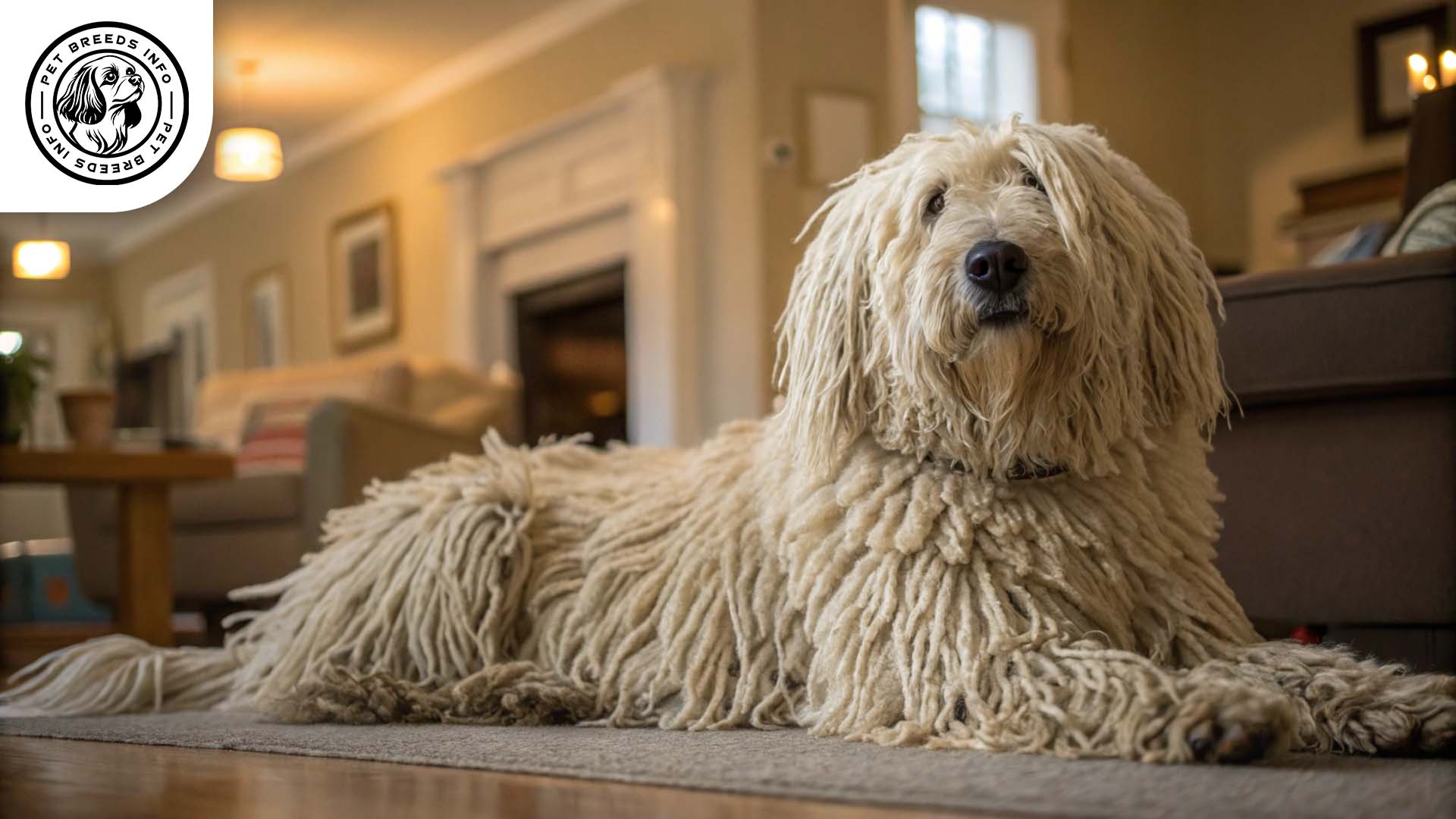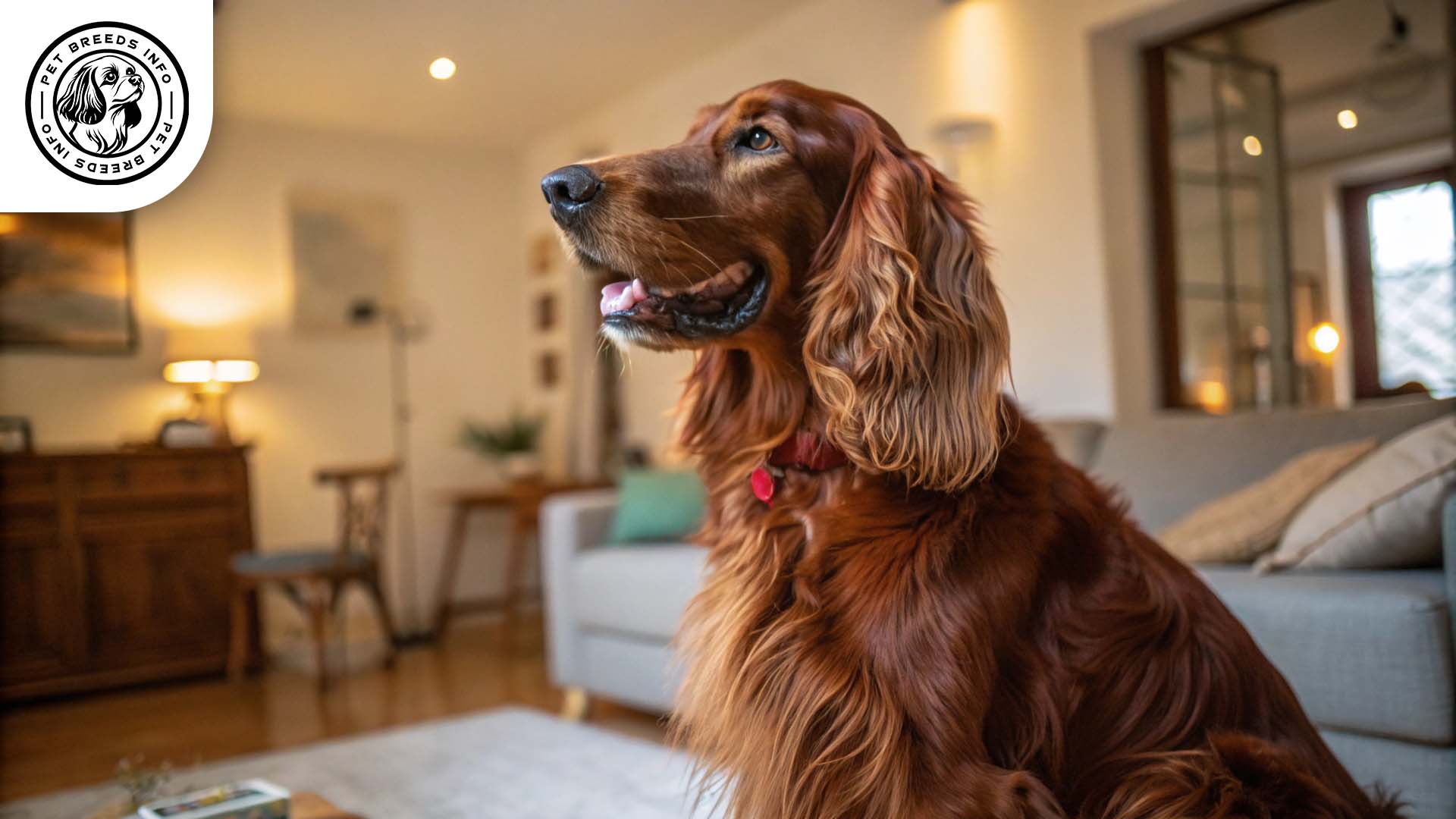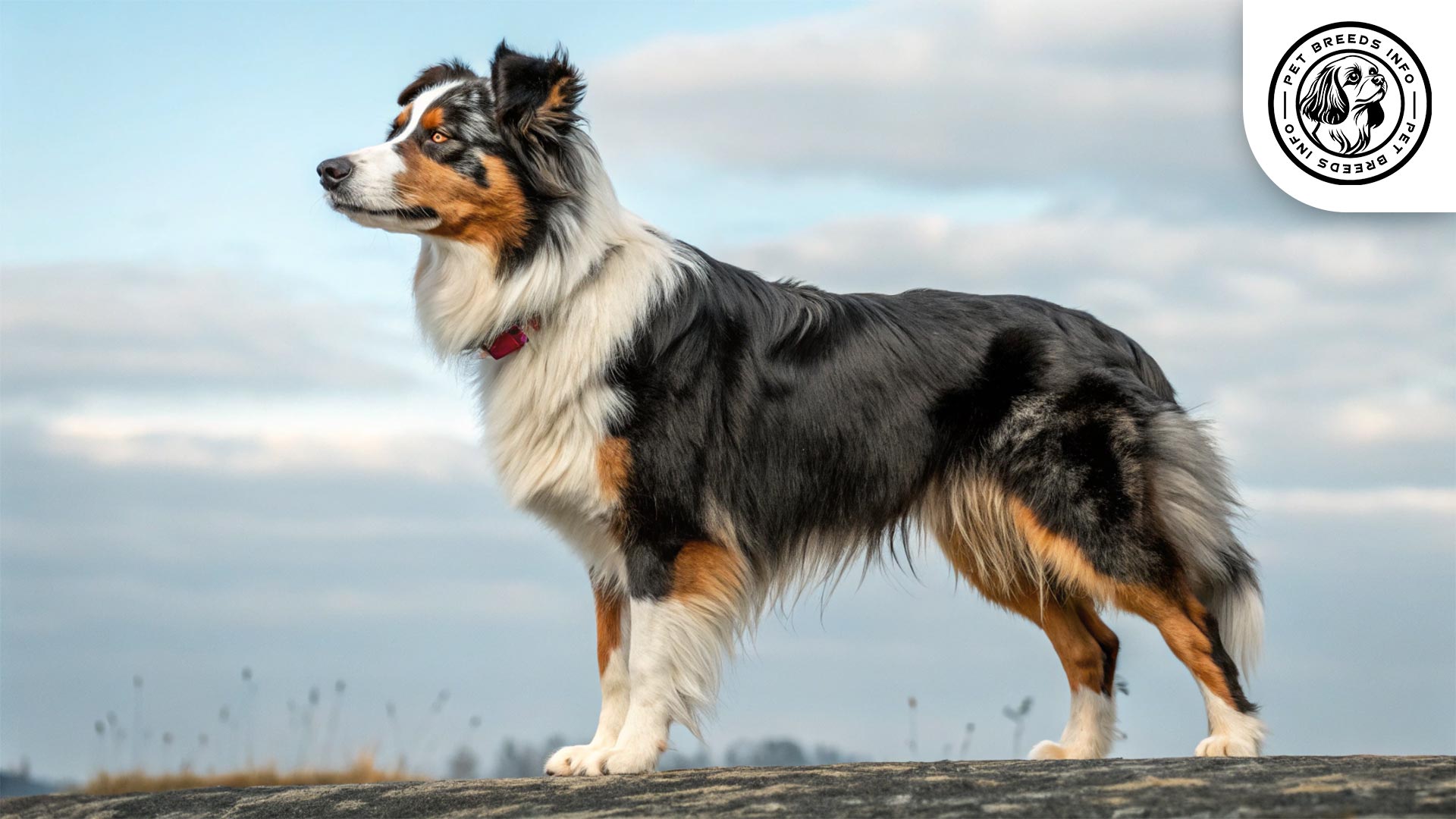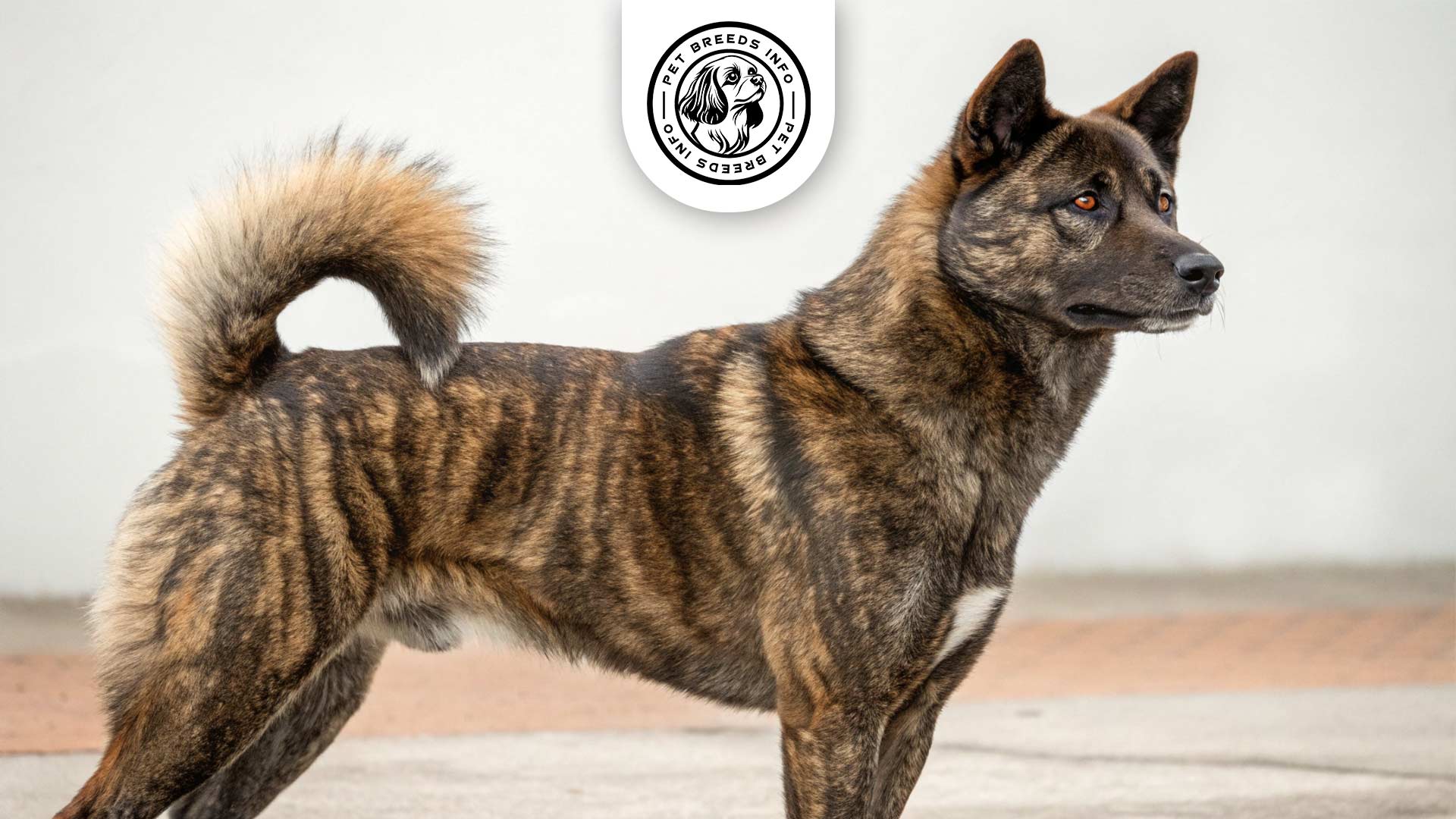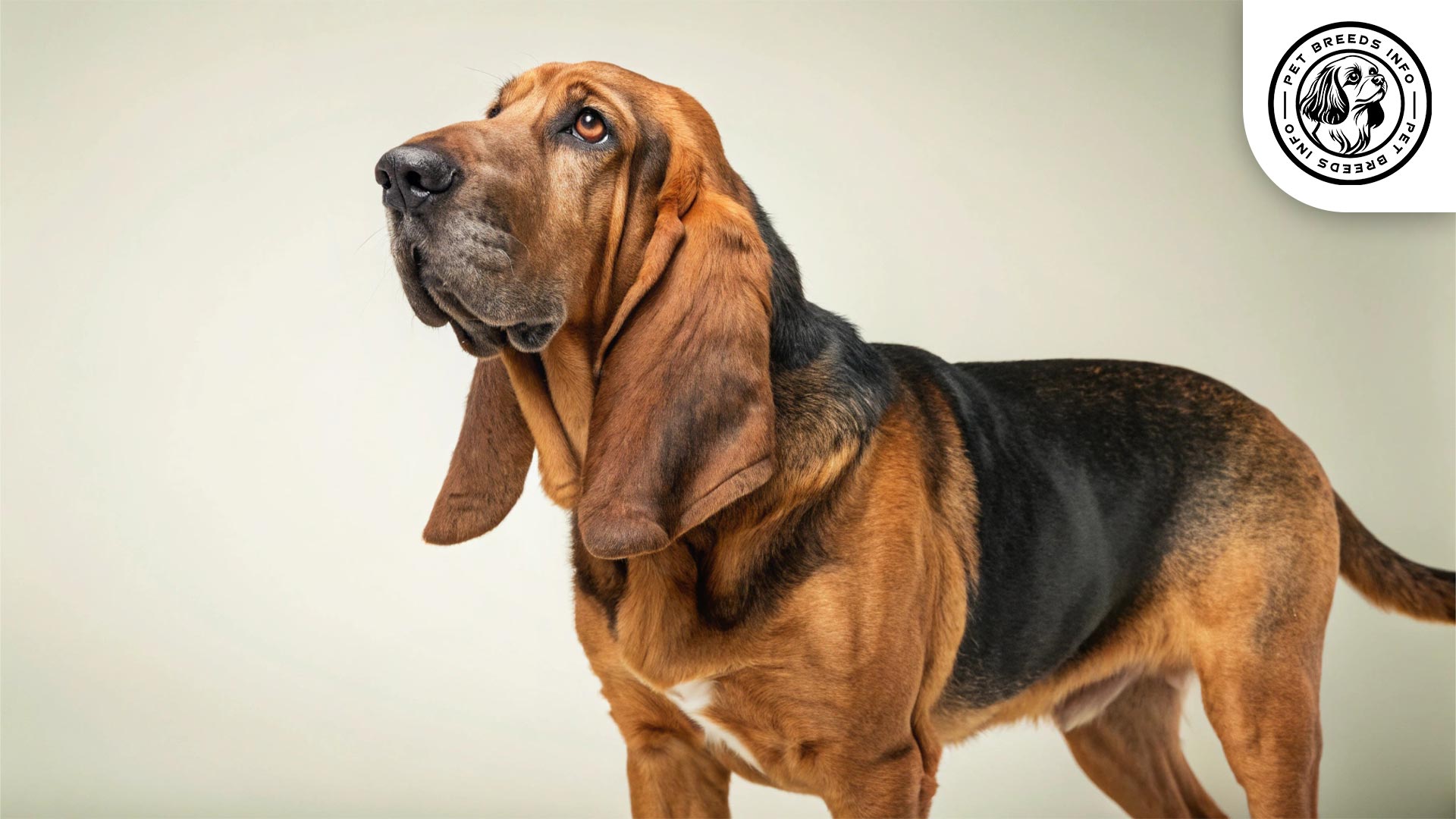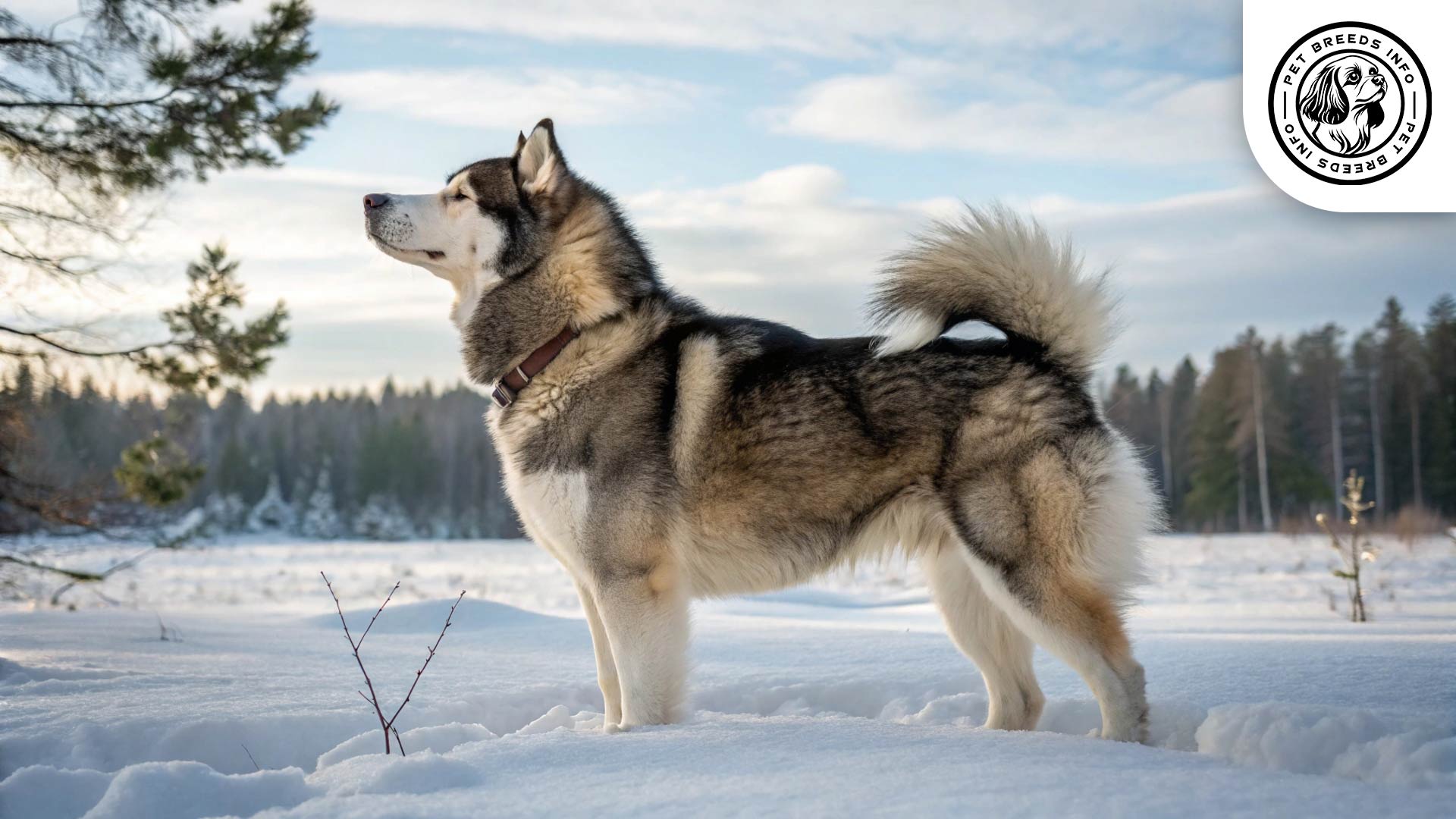Komondor Dog Breed : Size, Health, Price & Personality
General Introduction of the Breed
The Komondor, also known as the Hungarian Sheepdog or Mop Dog, originates from Hungary. This ancient breed was traditionally used to guard livestock against predators. With its distinctive corded coat, the Komondor has been a loyal guardian for centuries, dating back to the time of the Magyar tribes in Hungary.
Table of Contents
| Weight | Males: 100-130 lbs (45-59 kg), Females: 80-100 lbs (36-45 kg) |
| Lifespan | 10-12 years |
| Diet | High-protein kibble, wet food, or raw diet; portion-controlled meals |
| Care | Requires space, daily exercise, coat maintenance, and hygiene care |
| Health | Prone to hip dysplasia, bloat, entropion, and heat sensitivity |
| Color | White (only recognized color) |
| Nature | Loyal, protective, intelligent, independent, and territorial |
| Price | $1,000 – $2,500 (depending on breeder and lineage) |
Physical Characteristics
The Komondor is a large and powerful dog. Males typically stand between 27 to 30 inches tall and weigh 100 to 130 pounds, while females are slightly smaller, standing between 25 to 28 inches and weighing 80 to 100 pounds.
Its coat is long, dense, and naturally forms cords, providing protection from harsh weather and predators. The only recognized color is white.
The Komondor has dark, almond-shaped eyes that express intelligence and alertness. Its ears are medium-sized and hang down, blending with the long coat. The tail is long and curves slightly when the dog is at rest.
The most distinctive feature of the Komondor is its unique corded coat, which resembles mop-like strands. This coat protects the dog from attacks and harsh elements.
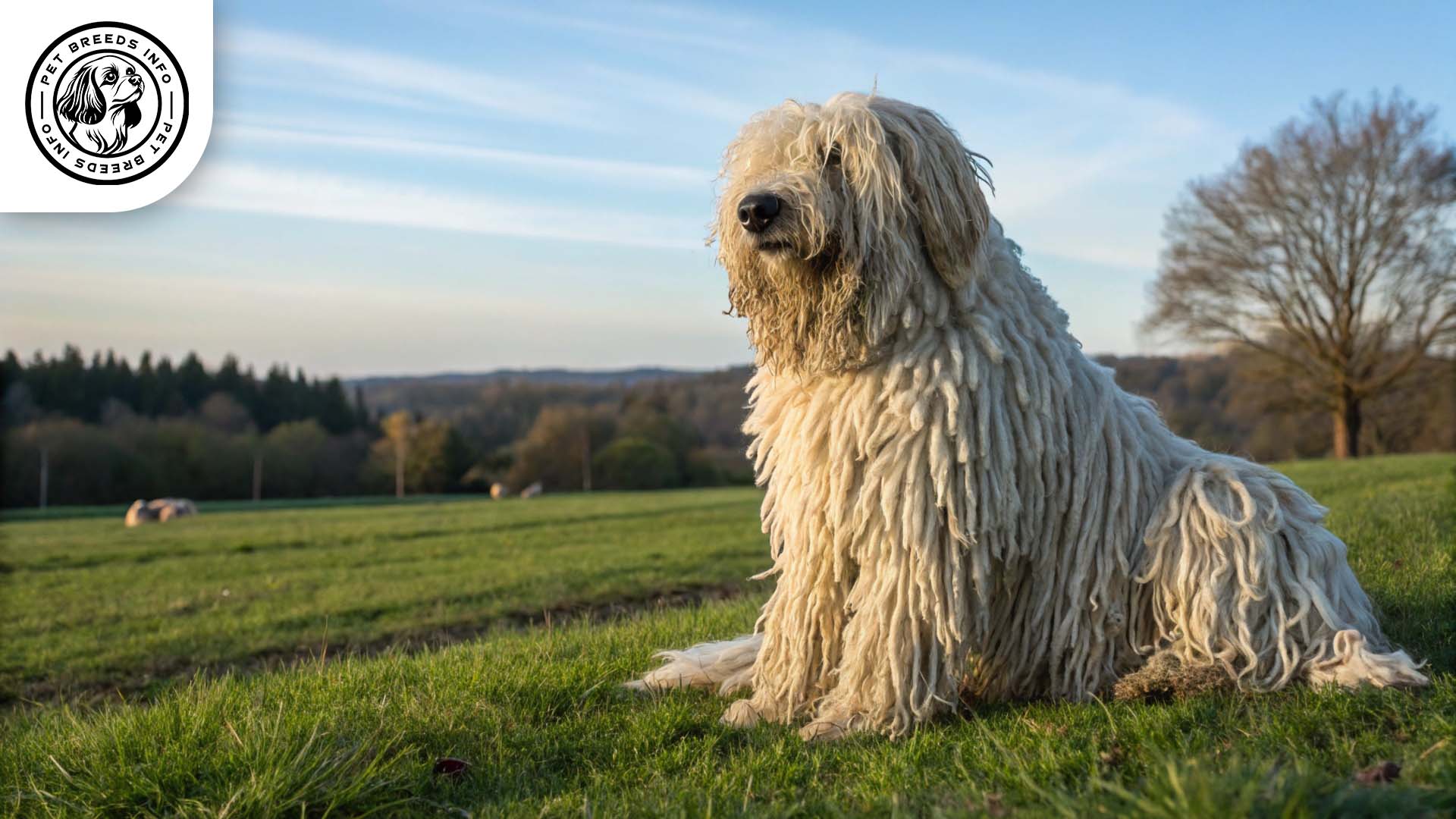
Personality and Temperament
The Komondor is highly intelligent and independent, making it a quick learner but sometimes stubborn. It has a moderate to high energy level and requires regular physical and mental stimulation.
This breed is extremely loyal to its owner and develops a strong bond with family members. It is naturally protective and reserved with strangers, making it an excellent guard dog.
Komondors can be good with children if raised with them, but they tend to be wary of unfamiliar people and animals. They do not have strong hunting instincts but are highly territorial.
They are sensitive to environmental changes and prefer a stable routine.
Read More: Icelandic Sheepdog
Care and Maintenance Requirements
Komondors need daily exercise, such as walks or playtime in a spacious yard. They are not well-suited for apartment living and require space to roam.
Their coat requires significant upkeep. While they do not shed much, their cords must be regularly checked for dirt and debris. Bathing should be infrequent but thorough, as drying takes a long time.
They are generally tolerant of cold weather but may struggle in hot and humid climates due to their dense coat.
Regular hygiene maintenance, including nail trimming, ear cleaning, and dental care, is crucial for their overall health.
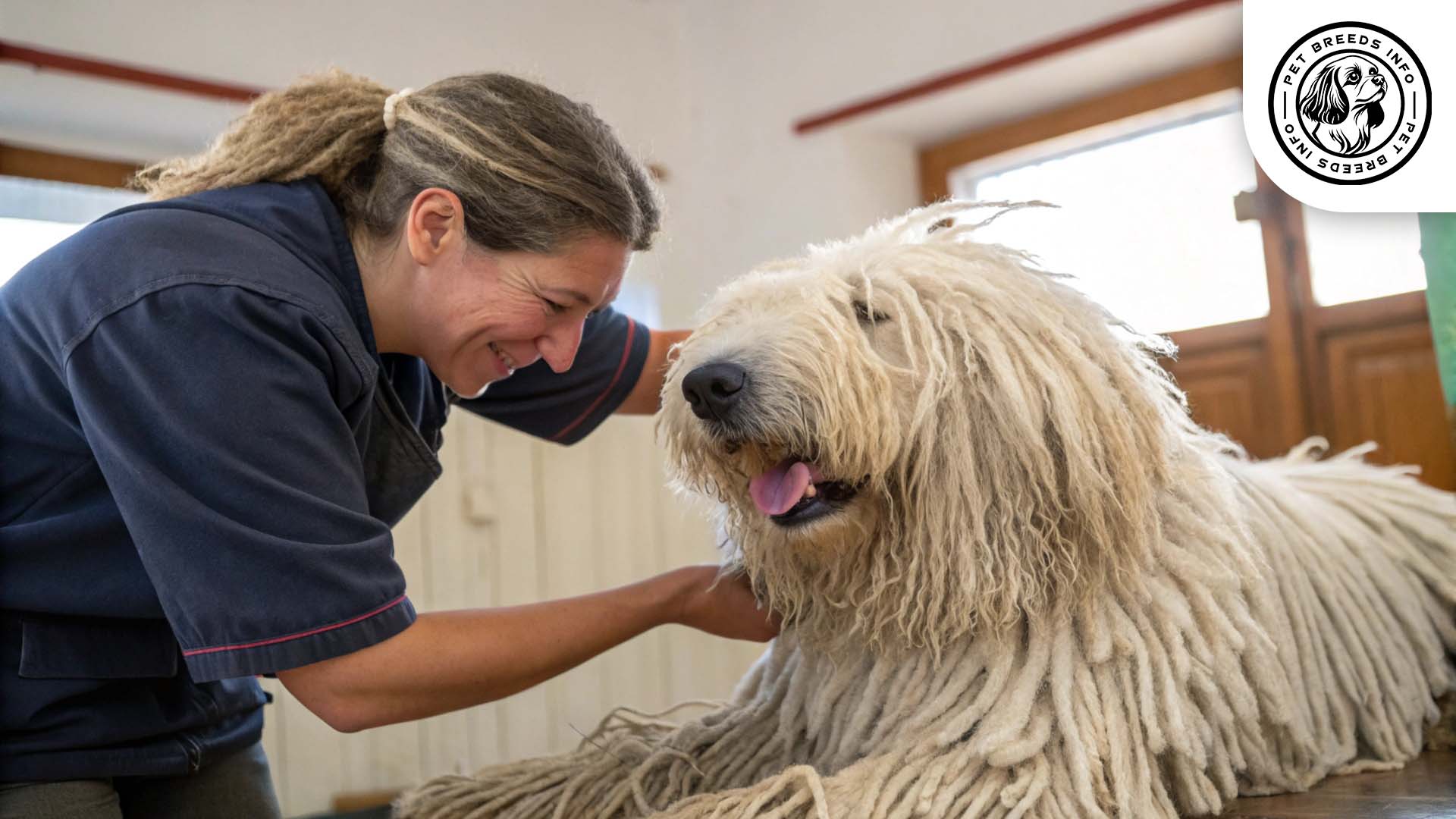
Diet and Nutrition
The Komondor thrives on a high-quality diet, whether dry kibble, wet food, or a raw diet. Protein-rich nutrition supports their muscular build.
Owners should avoid feeding them processed human foods, chocolate, grapes, onions, and overly fatty or spicy foods.
Portion control is essential to prevent obesity. Typically, an adult Komondor requires 3 to 5 cups of food daily, divided into two meals.
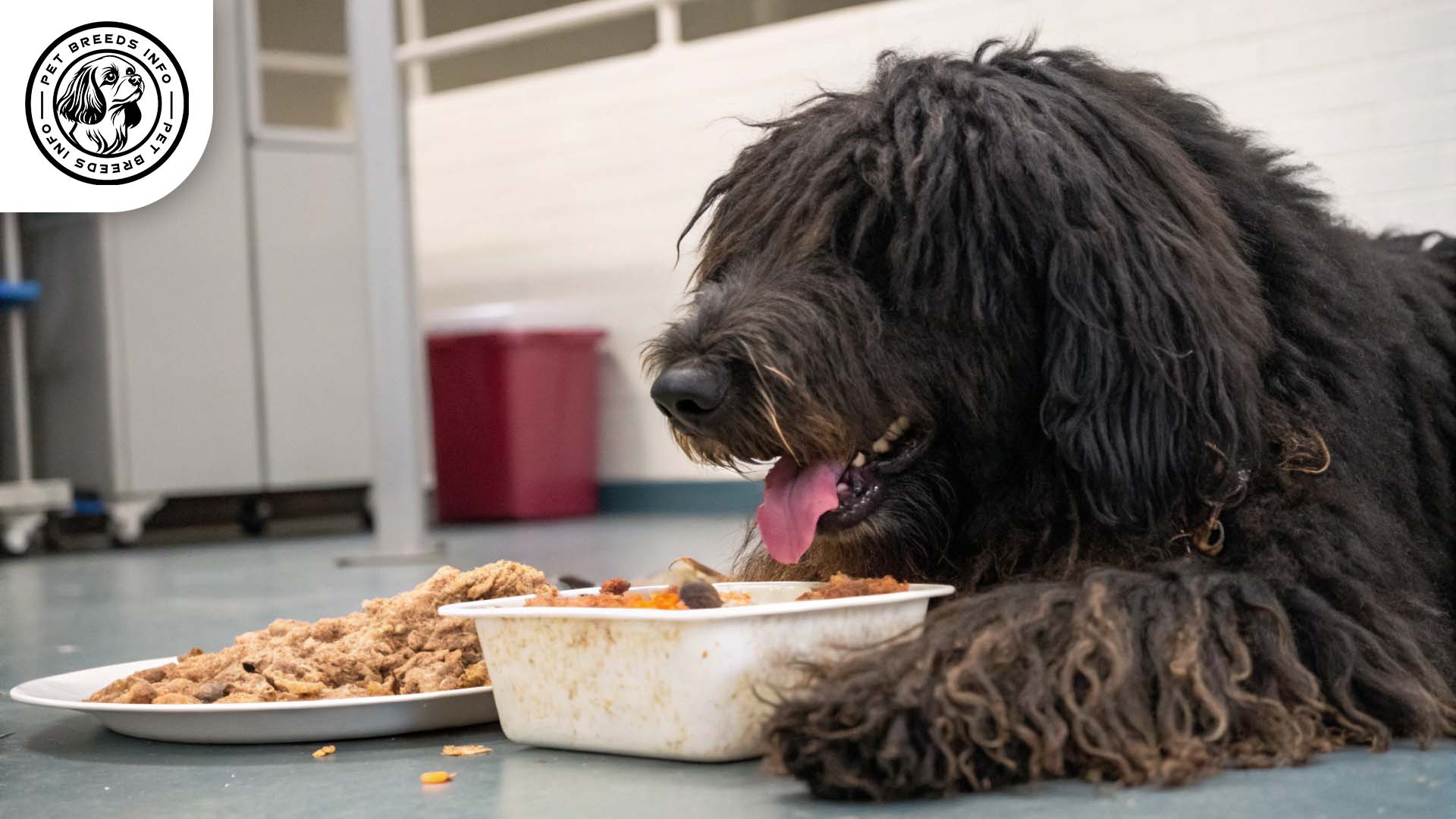
Health and Common Medical Issues
The Komondor is generally a healthy breed but is prone to certain genetic health conditions, including hip dysplasia, bloat (gastric torsion), and entropion (a condition affecting the eyelids).
Common breed-specific sensitivities include a susceptibility to heatstroke due to its thick coat.
The average lifespan of a Komondor is around 10 to 12 years.
Routine veterinary care, vaccinations, and preventive measures help maintain this breed’s health.
Read More: Chinese Shar-Pei Dog
Training and Behavior Management
Training a Komondor requires patience and consistency. While intelligent, they are independent thinkers and need firm but positive reinforcement techniques.
Early socialization is crucial to prevent aggressive guarding behavior. Exposure to different people, animals, and environments at a young age helps make them well-rounded adults.
Crate training and basic obedience training should start early. Harsh training methods should be avoided, as this breed responds best to positive reinforcement.
Interaction with Other Animals and Humans
Komondors can be good with children when properly socialized but should always be supervised due to their size.
They tend to be wary of unfamiliar animals, making early socialization and training essential if they are to coexist with other pets.
They are best suited for experienced owners who understand their guarding instincts.
While independent, they form deep attachments to their owner and family.
Price and Availability
The price of a Komondor puppy can range from $1,000 to $2,500, depending on the breeder’s reputation and the dog’s lineage.
Potential owners should research reputable breeders who perform health tests to ensure genetic soundness.
Adopting from shelters or breed-specific rescue groups is another option for bringing a Komondor into your home.
Read More: Cardigan Welsh Corgi Dog
Conclusion and Final Thoughts
The Komondor is a loyal, intelligent, and protective breed, making it an excellent guardian dog. However, its grooming and training requirements may not be suitable for all owners.
This breed thrives in a spacious environment where it can perform its natural guarding duties. Apartment living is not ideal.
Potential owners should be prepared for the breed’s unique coat maintenance, strong guarding instincts, and independent nature.
For those willing to dedicate time and effort, the Komondor is a loving and protective companion.
FAQ
Are Komondors good family dogs?
Yes, they are loyal and protective, but they require early socialization and training to be good family pets.
How much grooming does a Komondor need?
Their corded coat requires regular maintenance to prevent dirt buildup, but they do not shed much.
Do Komondors get along with other pets?
They can coexist with other animals if socialized early, but they are naturally territorial.
Are Komondors suitable for first-time dog owners?
No, they require experienced owners due to their independent nature and guarding instincts.
Can Komondors live in hot climates?
They struggle in hot and humid climates due to their thick coat, requiring shade and hydration.
